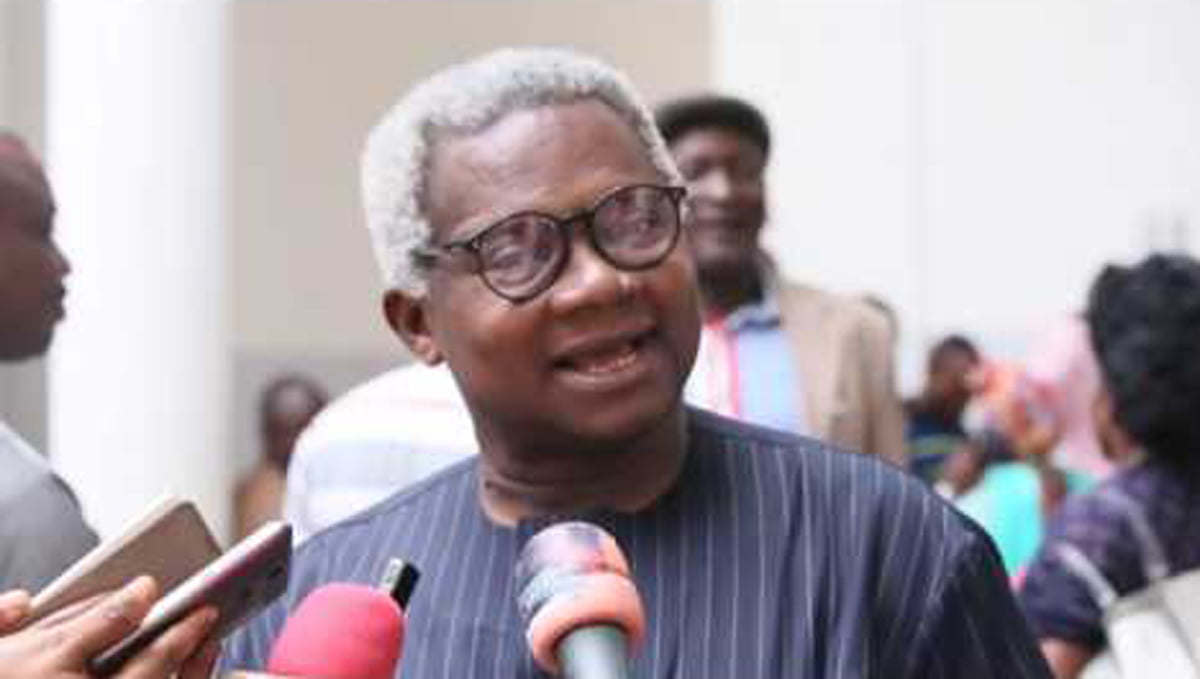Politics
What Igbos really want — Osita Okechukwu, VON DG

In a recent interview, Mr. Osita Okechukwu, the Director General of Voice of Nigeria (VON), shared his insights on the past administration and projected the upcoming government of President Bola Ahmed Tinubu.
Okechukwu, a member of the ruling All Progressives Congress (APC) and a strong supporter of the previous President Muhammadu Buhari, highlighted the significance of infrastructural development and security in Nigeria, particularly in the South-East region.
Reflecting on the achievements of the immediate past administration, Okechukwu emphasized President Buhari’s efforts to address the issue of unpaid salaries and pensioners’ debts.
Before presenting his cabinet members to the Senate, President Buhari thoroughly reviewed federal and state files, discovering substantial debts owed to workers and pensioners, some dating back to the Biafra-Nigeria civil war.
To alleviate this burden, the administration allocated approximately N3 trillion towards settling these debts. Okechukwu lauded President Buhari’s commitment to pension compliance, ensuring timely payments to retirees.
Furthermore, Okechukwu acknowledged the administration’s focus on agricultural reforms and initiatives such as the Anchor Borrowers’ Program and the Green Alternative.
These policies aimed to diversify the economy, enhance food security, and promote rural development. Okechukwu regarded the administration’s investments in agriculture as significant, although he acknowledged that insecurity posed challenges to farmers’ productivity.
The Director General of Voice of Nigeria (VON), Mr. Osita Okechukwu, also shared his perspective on the issue of marginalization of the Igbo people in Nigeria. In the interview, Okechukwu addressed concerns regarding appointments and emphasized the importance of prioritizing infrastructural development in the Southeast region.
When asked about the alleged marginalization of Ndigbo in appointments, Okechukwu expressed his belief that the Igbo community was not marginalized in terms of physical and social infrastructure. He stressed the need for President Bola Tinubu to focus on infrastructure development in the region rather than emphasizing what he referred to as “juicy appointments.”
Okechukwu cited projects such as the construction of the 2nd Niger Bridge, rehabilitation of federal roads, establishment of universities, construction of dams, internet broadband penetration, and the development of the Standard Eastern Corridor Railways as essential for the progress of the region.
Okechukwu further highlighted the entrepreneurial spirit and hardworking nature of the Igbo people, asserting that the lack of adequate infrastructure hindered their potential for economic growth and prosperity.
He called on politicians who prioritize personal gains to reconsider their approach and focus on the broader interests of the Igbo community. Okechukwu criticized those who engaged in lobbying and used campaigns of calumny to manipulate the political landscape, urging them to prioritize the development of the region instead.
In a plea to the Igbo community, Okechukwu drew parallels to the experiences of post-World War II Japan and Germany, emphasizing the importance of moving forward and embracing opportunities for growth and development. Despite the challenges faced by those nations after the war, they chose to rebuild and collaborate with the Americans, leading to their subsequent success.
Regarding Nigeria’s economy, Okechukwu acknowledged that economic development is an ongoing process, and each government contributes to its progression. He recognized both positive and negative aspects of the Buhari administration, particularly in the areas of infrastructure and agriculture.
Okechukwu expressed confidence that President Tinubu or any future administration would likely follow Buhari’s blueprint to diversify the economy through initiatives such as the Anchor Borrowers Programme and increased investment in agriculture.
In response to questions about social intervention programs, Okechukwu rated the Social Investment Programme above average, acknowledging its role as a short-term palliative measure. He emphasized the importance of agriculture and digital fin-tech programs to uplift Nigerian youths and address poverty-related challenges more comprehensively.
Regarding the security situation in the South-East, Okechukwu acknowledged the unfortunate rise of insecurity, attributing it to the delayed response to the herders-farmers’ clashes. He urged Nigerians to gradually move away from ethnic divisions, emphasizing the need for unity.

Okechukwu also addressed the issue of appointments, stating that infrastructure development, such as the completion of the 2nd Niger Bridge and the rehabilitation of federal roads, should take precedence over “juicy appointments” for the Ndigbo region.
As the Director General of Voice of Nigeria, Okechukwu discussed the challenges faced by the organization, including inadequate funding due to technological advancements in the broadcasting industry.
He highlighted the need to adapt to digital broadcasting while maintaining the relevance of the Shortwave Digital Radio Mondiale (DRM) technology.
Okechukwu’s interview shed light on important aspects of the past administration and provided insights into the priorities and expectations for the incoming government.
The emphasis on infrastructure development and the promotion of agriculture underscored the significance of addressing the needs of the people and fostering economic growth in Nigeria.































